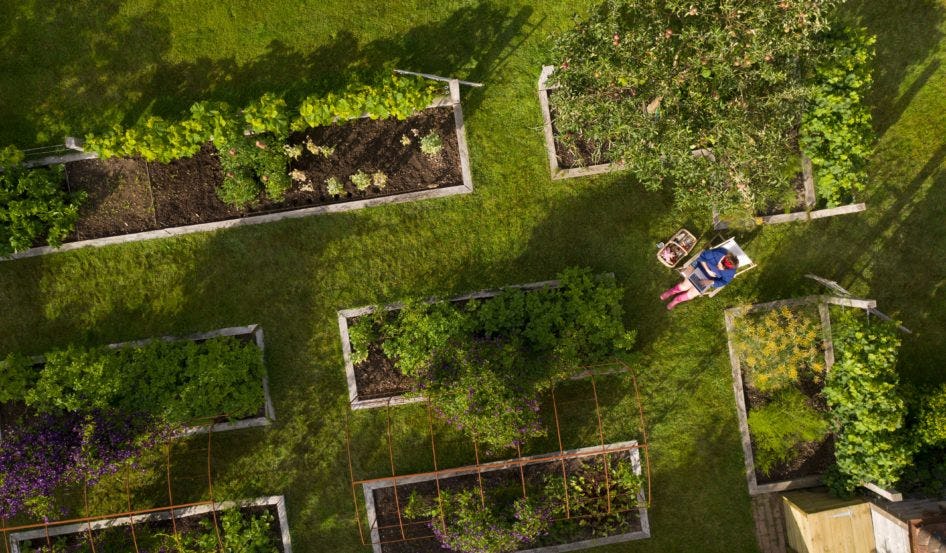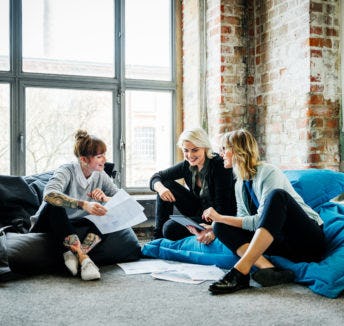
Hybrid working is helping to create the foundation of a more sustainable future, and employers need to grasp the opportunities that arise.
Flexible working has come hand in hand with a new era of sustainability. There are numerous ecological benefits to sharing spaces and having fewer empty desks, but also the pioneering mindset that flexible workers seem to possess means that eco-friendly offices, technology and behaviours are becoming more than a nice perk, they are becoming an expectation.
Environmental and social responsibility is of particular importance to Gen Z, with 55% saying employers should take it seriously, and almost half (48%) refusing to join a business that doesn’t have clear environmental and social goals.
Room to grow
The hybrid model enables businesses to grow naturally over time. Many of our members have started small with just a few desks, before gradually taking over entire swathes as and when they need – or on a hire-by-hire basis. It’s more sustainable both environmentally and economically.
The environmental benefits of companies switching to the hybrid model are considerable too. Buildings currently account for 40% of societal energy use, and a single unused desk creates a tonne of CO2 each year (the equivalent of driving a car 6,000 miles). Post-Covid-19, many workers choose to stay away from HQs on Mondays and Fridays, opting for home-working or a local flexspace instead. By downsizing their central HQ and using flexspace according to demand, companies can both reduce their carbon footprint and give their employees a place to go that is thriving and full of life every day of the week.
Flexible freelancers
Globally, the flexible freelancer community is growing steadily. Allwork reported that by 2027, freelancers will make up more than 50% of the total workforce in many major economies. We are also still in the midst of the ‘Great Resignation’, a term coined in 2021 when globally, more people than ever started leaving their permanent, traditional, salaried jobs.
But the behavioural habits of the freelancer are also being picked up more widely by the permanently employed community. As they’ve adopted hybrid working, more businesses are turning towards environmentally efficient shared workspaces. The average number of visits to IWG’s Regus, Spaces and other UK workspaces climbed by 54% from January to November 2022, as more workers split their time between working close to home and in the office. Additionally, during the past two years in the UK alone, IWG has opened almost all its new centres in non-city centre environments. Demand for suburban locations has increased exponentially around the world, and that’s having another positive environmental knock-on effect…
Cutting down the commute
The ‘hub-and-spoke’ model allows workers the flexibility to attend face-to-face meetings at a company HQ, but also to base themselves at a flexible workspace closer to home when working solo. It is a key driver in sustainable employment for one main reason — it reduces the commute. As IWG CEO Mark Dixon says: “Companies of all sizes see addressing the need for their people to commute to work as the single greatest contribution they can make to reducing their carbon footprint. They understand that by bringing work into the home, and into the heart of communities, they will immediately and significantly reduce the weight of traffic on roads and in cities across the world.”
Tech choices
The adoption of hybrid working across the globe has also accelerated sustainable technology innovation. Online meeting technology, ranging from the metaverse to large plug-and-go screens that can raise remote participants into life-sized faces at the table, all help alleviate the need for travel. And as the gaze starts to shift more meaningfully towards sustainable working, more ecologically thoughtful hardware is also being created. Tech company Acer has just launched a new light, hybrid-friendly laptop that they say are up to 50% more efficient than comparable modern devices. They have also started using post-consumer recycled plastic for their chassis and keyboard. Similarly, the newest HP PCs contain 90% recycled magnesium in their enclosure case, while all outer packing for the devices is 100% sustainably sourced. And while innovations like the world’s first PC made with recycled coffee grounds are perhaps more in the business of marketing than real sustainability, green innovation driven by new ways of working is clearly shaping the landscape. As Environmental, Social, and Governance (ESG) principles become increasingly important in every business’s strategy, more innovations like these will be needed.
Green offices
And then there are the offices themselves. Modern, sustainable design has plenty of scope to be playful. Our Spaces office at Tour & Taxis in Brussels is in the refurbished Gare Maritime, an old freight station. It’s carbon neutral, rated BREEAM outstanding, and best of all, there are ten different gardens on site – all watered with collected rainwater – where people can take their lunch breaks. Similarly, our Omniturm office in Frankfurt has a platinum certificate by LEED, thanks in part to solar-protected glazing designed to cut out the need for air conditioning and artificial light. There are plenty of similar options.
Employees love working in a nice office, but more than that, they love working in a sustainable one because it reflects the values and care of the employers who choose to inhabit them. Environmentally conscious employers are often human conscious too.
Get in touch to discover more about our green offices and find out how Spaces can help your business become more sustainable.
Share this article
 Read now ‘Let’s catch up’ - why we have to make time for mental health conversations.
Read now ‘Let’s catch up’ - why we have to make time for mental health conversations.
 Read now Go your own way: Unconventional career paths are the new normal
Read now Go your own way: Unconventional career paths are the new normal